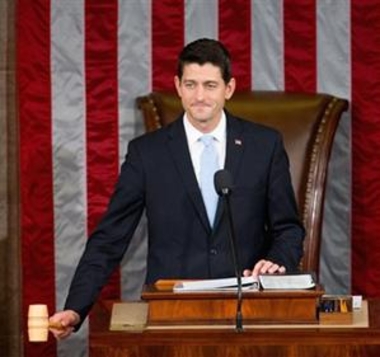House returns facing election pressure, averting shutdown, impeaching IRS commissioner

Washington (AP) — The House will vote as early as next week on a conservative effort to impeach IRS chief John Koskinen. But congressional GOP leaders still must decide how to avert a federal shutdown and finance federal efforts to contain the Zika virus, even as the approaching elections pressure them to avoid riling voters.
After House Republicans met privately Wednesday for the first time since Congress returned from summer recess, leaders said GOP lawmakers would meet again next week to discuss their next steps on Koskinen's impeachment. They said a House vote would come sometime after that.
Conservatives have pushed for Koskinen's removal since last year, saying he's impeded their investigation of how the IRS treated tea party groups several years ago — before he led the agency. Others worry that with the effort certain to fail in the Senate should it get that far, it needlessly risks making the GOP look too partisan just before voters go to the polls.
"Members are going to vote the way they want to vote on this," House Speaker Paul Ryan, R-Wis., told reporters. But he added, "You have members on both sides of this."
The impeachment drive has prompted little enthusiasm among GOP leaders and is solidly opposed by Democrats. Even if the House votes to impeach Koskinen — the equivalent of formally charging him with a crime — the move is certain to go nowhere in the Senate, which has final say on removing an official from office.
A resolution introduced by conservatives accuses Koskinen of not cooperating with congressional subpoenas for documents and making false statements to Congress about destroyed emails in the probe. Koskinen has said the charges are without substance.
Republican leaders hope to resolve that and other issues and send Congress home by September's end so lawmakers can campaign.
In a post-summer fixture for Congress, Republicans and Democrats remain divided over federal expenditures. Lawmakers have a long way to go to complete spending legislation to keep agencies functioning after Sept. 30.
With zero chance of completing all 12 spending bills by then, the key questions are how many weeks a temporary spending package will last, and whether the GOP can garner enough votes for such a measure without triggering a government shutdown sure to enrage voters.
Many conservatives want to provide temporary spending into early next year, instead of extending it only into December. They don't want to let a post-election, lame-duck session of Congress make the year's spending decisions because they say retiring lawmakers who no longer must face voters are more inclined to accept wasteful spending.
President Barack Obama and Senate Democrat oppose that idea. Even House Speaker Paul Ryan, R-Wis., has said he wants to keep negotiating into the fall on full-year spending measures.
"I'm sure we'll have a successful outcome to make sure just that the trains are running on time," Ryan told hometown radio host Stan Milam of AM 1380 in Janesville, Wisconsin, on Tuesday.
Some conservatives said Wednesday they might support a short-term spending bill into December in exchange for language blocking money to resettle Syrian refugees in the United States, language opposed by most Democrats.
Late Tuesday, the Senate used its first vote since returning to recess to highlight that partisan battling over financing the battle against Zika remains as bitter as ever.
For the third time this year, Senate Democrats blocked a Republican measure to battle the virus. A 52-46 vote to advance the money fell short of the 60 votes needed as Democrats opposed provisions blocking Zika prevention and treatment money from going to Planned Parenthood clinics in Puerto Rico.
Republicans called that a shaky excuse compared to the threat of the mosquito-carried Zika virus. No. 3 Senate Democratic leader Chuck Schumer of New York said the GOP was using the bill "to assuage the hard right."
There have been dozens of Zika cases in the political battleground state of Florida. Tuesday's vote could prod Republicans to attach Zika money to temporary spending legislation.
Part of the spending fight is over the Pentagon. Republicans want to use emergency war funds to artificially increase the basic defense budget by $16 billion next year.
The Obama administration and its Democratic allies oppose the idea, saying if Republicans want more money for defense, domestic programs will have to receive an equal boost. Senate Democrats also blocked that measure from advancing Tuesday.
By Alan Fram, Associated Press. Copyright 2016 The Associated Press. All rights reserved. This material may not be published, broadcast, rewritten or redistributed.
The Gayly – September 7, 2016 @ 12 p.m.





